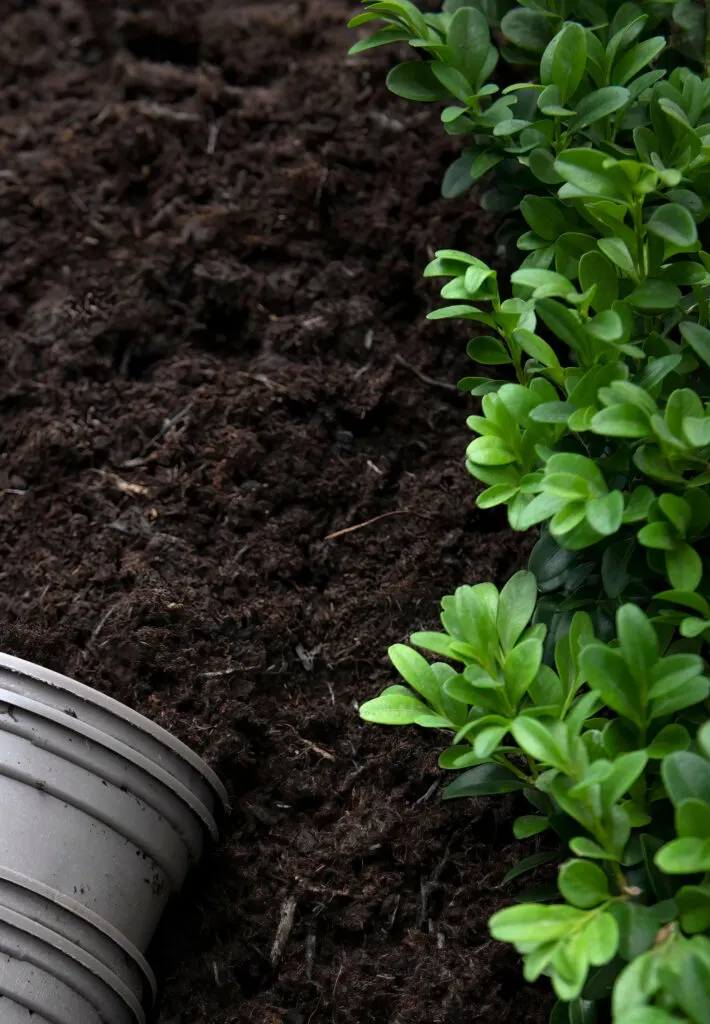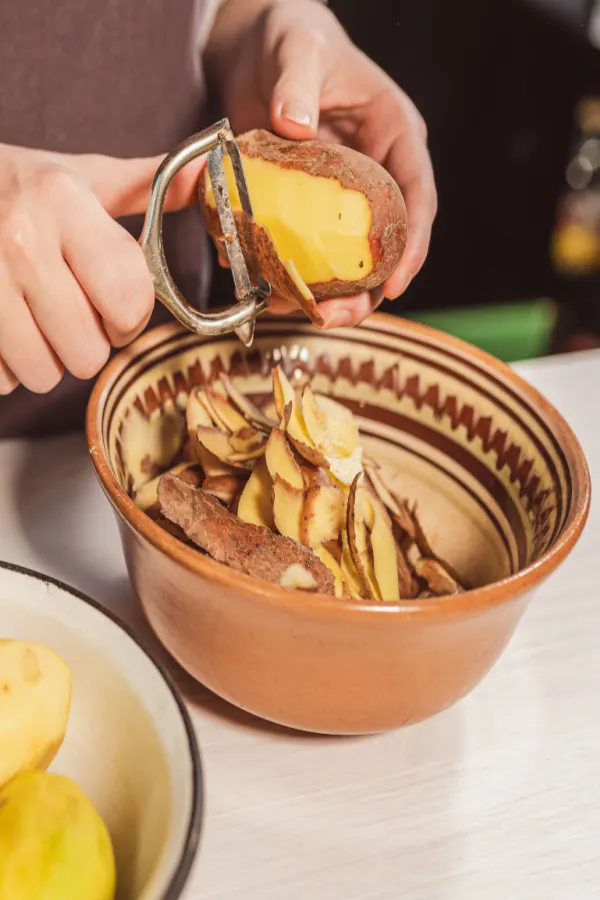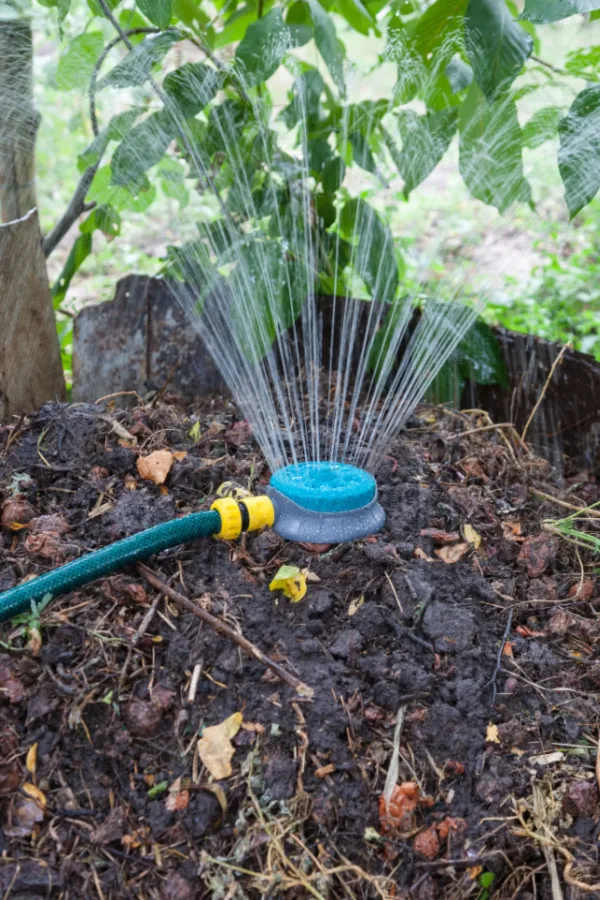Did you know that by simply adding a few common ingredients to your compost pile every week, you can create a more productive pile that decomposes faster than ever?
One of the best ways to build better soil and grow healthier and more productive plants is with compost. Adding compost to your garden and flowerbeds helps to re-energize and replenish vital nutrients in the soil. And when used in planting holes or as a top dressing around plants, it can provide them with ready to absorb minerals to power fast growth.
But for most home gardeners, the biggest issue with compost isn’t determining how valuable it is – but instead how to make enough of it and quickly enough to always have it at the ready.

It’s a fairly obvious fact that the more material you can add to your pile, the more compost you will be able to make. But what you put in your pile is very important -as it can have a big impact on the performance and fertility of your compost pile as it ages.
Creating A Great Compost Pile With Great Ingredients
Most home compost piles struggle to decompose at a fast pace. They also usually fail to reach hot enough temperatures to kill pathogens and weed seeds.
Why is this so common? The usual culprit is that most home piles simply don’t contain the right mix of materials to heat the pile to a hot enough temperature. A hot pile not only kills off weed seeds and harmful bacteria, it also speeds up the decomposition process immensely.
So what heats up a compost pile? For the most part, materials that are nitrogen based or “green materials” are the ingredients that energize the decomposition process – along with proper water and oxygen. And unfortunately, all three of these ingredients are exactly what most home piles usually lack the most.
To work best, a compost pile should consist of 4 parts of brown (carbon) materials, and 1 part green. Brown materials are decayed debris, dead grass, leaves, straw and other “dead” material.

These materials are usually more than plentiful to find and add – and exactly why home piles usually have an excess of them as part of their make-up. But the good news is there are also plenty of the “greens” and other ingredients that are needed to heat your pile up available – and they are right at your fingertips!
With that in mind, here is a look at 5 key materials that can easily be gathered and added to your pile each and every week to get your pile cooking fast!
5 Things To Add To Your Compost Pile Every Week
Coffee Grounds
Coffee grounds are an incredible source of energy for a compost pile. Even better, they are easy to obtain, even if there isn’t a coffee drinker in your house.
When coffee is brewed, the acid that is in the ground beans is removed. And what remains is a bevy of trace nutrients and minerals that can help warm up a pile fast. Spent coffee grounds contain nitrogen, and nitrogen is one of the key ingredients for heating up a pile.
Each and every morning, make it a habit to take your coffee grounds to your pile. And don’t forget to throw in the paper filter too. Coffee filters are completely compostable, and make adding the grounds easy and mess free. Just be sure to use unbleached filters in your coffee maker.
And what if you aren’t a coffee drinker? Ask your neighbors and friends to save their grounds for you. Even better, check with your local coffee shops, many will gladly save their grounds for gardeners.

And don’t forget to save your coffee grounds in the winter months too. Not only can you keep them to power your compost pile, but also to use when planting in the spring to energize plants! (See: How To Save Coffee Grounds In The Winter Without Having Them Mold)
Vegetable Peels & Scraps
Stop throwing those vegetable peels and scraps down the garbage disposal! Vegetable peels from potatoes, carrots, bananas and other garden vegetables are excellent for heating up a pile quickly. And in most home kitchens – they are readily available.
Not only do they break down quickly, they add an enormous amount of nutrients to your pile. Take your vegetable scraps out regularly and place them into the middle of the pile. In fact, it is important to always put all new materials into the middle so they can generate heat quickly.
Egg Shells
Because egg shells contain traces of nitrogen, calcium and moisture, they too are a wonderful green material. And can they ever help add big power to a compost pile!
When adding egg shells, always crush the shells up as finely as possible to speed decomposition. Crushing the shells also helps to expose more of their nutrients faster to the center of the pile, helping to heat it up in the process.
Just as with coffee grounds, even if you are not a consumer of eggs, there are plenty of neighbors, friends and family that are. They really can help add tremendous power to your pile.
Water
This may surprise a few folks as a key weekly ingredient, but water is actually one of the most vital of all ingredients to be adding regularly. Without moisture, a compost cannot generate heat. It will simply stall, cool off, and slow to a crawl when it comes to decomposition.

A good compost pile will feel like a well-wrung sponge. In the hot and often dry summer months, a pile can dry out quickly. Each and every week, check the moisture level of the center of your pile, if it is drying out, it’s time to add water.
Water both the interior and exterior of the pile. Apply enough moisture to get it to a moist but not saturated state. If it is extremely hot, you can also use a canvas or shade cloth to help keep the pile from drying out too quickly.
Oxygen
Just as is the case with water, a pile cannot function properly without oxygen. Oxygen fuels the entire heating process, and when absent or in limited quantities, a pile will cool off quickly.
The good news is adding oxygen is easy. And thankfully, there is little need to use air hoses or oxygen tanks to do so! Instead, by simply turning or flipping the ingredients in your pile a few times each week, you can easily introduce oxygen into the core of the pile – right where it’s needed most!
Turning your compost pile is a must to produce a hotter pile. For best results, turn your pile at least twice a week. Once a day is even better. The more oxygen available – the more your pile will heat up. And in the end, the more compost you will have for your plants!
Here is to getting the most from your compost pile this year. And remember, the more materials you add – the more compost you will have to power your soil and plants!
Follow Our Facebook Page For Great Gardening Tips And Advice! This Is My Garden Facebook Page
This Is My Garden is a garden website created by gardeners, for gardeners. Jim and Mary Competti have been writing gardening, DIY and recipe articles and books and speaking for over 15 years from their 46 acre Ohio farm. They publish three articles every week, 52 weeks a year. Sign up today to follow via email, or follow along!
